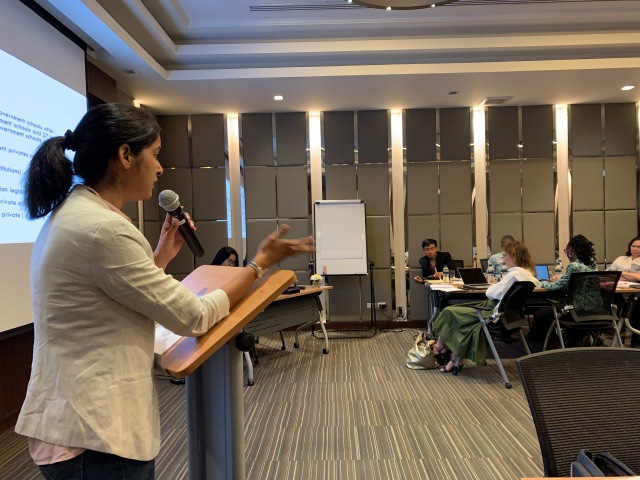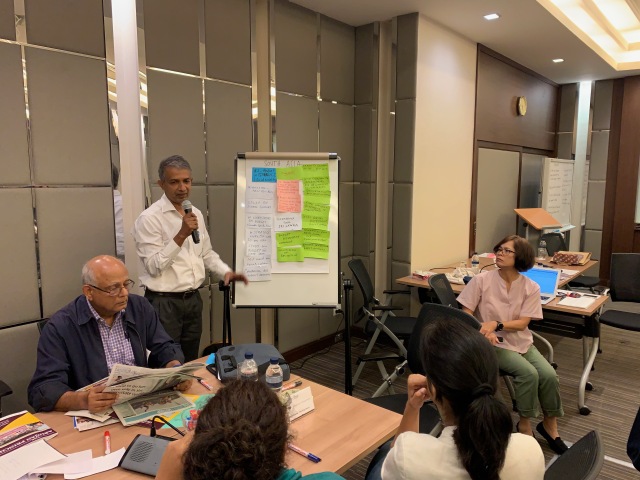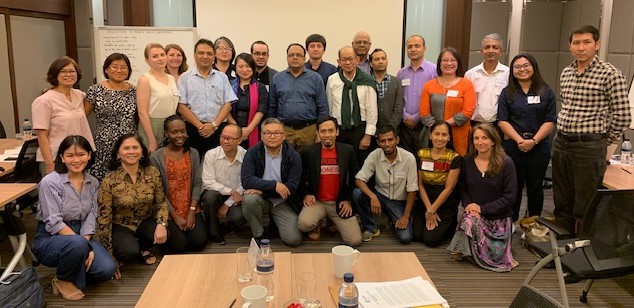Final Day of the Regional Consultation on the Right to Education and the Abidjan Principles

As a continuation of the first day’s discussions, the opening of the second day of the ‘Regional Consultation on Building National Capacity on the Right to Education and the Abidjan Principles’, was held on 5 October 2019 in Bangkok, Thailand. May Cinco, Board Member of E-Net Philippines, who energised participants with a short game and recap of the first day. She echoed the message of Gauri Pradhan, former Commissioner of the Nepali Human Rights Commission, who said, “Education cannot be divided into public and private education. It is a public good.”
Guided by the resource persons, Delphine Dorsi, Ashina Mtsumi, and Gauri Pradhan, participants went into their respective breakout groups to resume their discussions and clarification of the important provisions that can be used in the advocacy for the right to education for all. Most of the issues raised were based on different country contexts. However, several recurring themes emerged such as the influence of private actors on governments, the so-called “conflict of interest” found in politicians and authority figures who should be upholding the right to education for all yet own private educational institutions, the use of public funds to finance and to support private education, and the possible threat that private actors can use the Abidjan Principles in their argument to receive public funds to provide education.

The last session of the regional consultation put a spotlight on the next steps to take for the years 2020 to 2021. Some of the actions put forth by participants from Southeast Asia included disseminating the Abidjan Principles to coalition members and to schools, engaging with the Ministry of Education and the National Parliament, using different forms of media to campaign for the right to education, and to raise awareness on the Abidjan Principles.
Participants from South Asia plan to use the Principles as a reference in their lobbying for increased public budget for education, stricter enforcement of regulations of private educational institutions and the rising privatisation of education. Several coalitions, however, noted that their respective constitutions and laws lay emphasis on public education and make no reference to the provision of public funds to support private schools.
In Central and East Asia, the coalitions plan to consult various actors, including other civil society groups, academic organisations, and human rights institutions to help disseminate the Abidjan Principles. Participants from Mongolia, South Korea, and Kyrgyzstan plan to organise forums and meetings, and to use the Abidjan Principles in leveraging political parties in upcoming elections for a clear-cut stand against commercialised education.
The resource persons and ASPBAE’s Cecilia “Thea” Soriano identified and outlined key events and platforms to raise the advocacy position on the privatisation of education, the regulation of private actors’ involvement in education, and the Abidjan Principles.
In closing, ASPBAE’s Rene Raya extended his sincere gratitude and appreciation to the participants from the national education coalitions, staff, and resource persons. The participants and resource persons all agreed that the regional consultation enriched their understanding of international law on the right to education and the applicable provisions on private sector involvement in education in the context of the Asia Pacific region.

